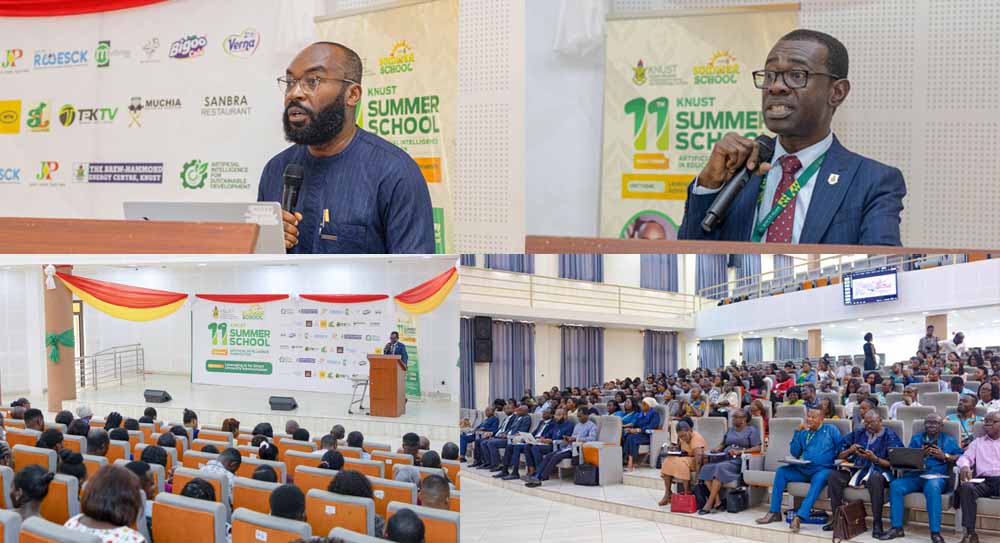Administrators at the Kwame Nkrumah University of Science and Technology (KNUST) have been urged to embrace Artificial Intelligence (AI) as a transformative tool for building smarter, data-driven, and people-centred institutions.
The call was made during the Registrar’s Office Session of the 11th KNUST Summer School, held under the theme “Leveraging AI for Smart University Administration.”
Mr. Benjamin Boampong Owusu, Registrar of KNUST, emphasised that AI is no longer a futuristic concept but a present reality capable of revolutionising higher education management.
“In the context of university administration, AI offers us tools to streamline admissions and registration, predict and improve student retention, automate repetitive tasks like transcript processing, and enhance decision-making through data analytics,” he said.
He illustrated what an AI-driven university administration could look like.
“Imagine an admissions system that identifies potential at-risk students even before matriculation. Imagine real-time dashboards that allow registrars, deans, and heads of departments to make data-informed decisions on staffing, budget, and academic support. This is not wishful thinking. These are possibilities within our reach,” he expressed.
While acknowledging AI’s potential, Mr. Owusu cautioned that it should not be viewed as a cure-all.
“Technology is only as smart as the people who use it,” he remarked. “We must invest in training, capacity building, and policy development. We must also address ethical concerns around data privacy and transparency. Most importantly, human judgment must remain central. AI should assist, not replace, the wisdom, empathy, and values that we bring as university administrators. Let us commit ourselves to building not just a digital university, but a smart university, one that is responsive, data-driven, and people-centred.”
Dr. Augustine Blay, former Chief of Staff and Executive Secretary to former Vice-President Dr. Mahamudu Bawumia, elaborated on how AI is reshaping administrative roles in universities.
“Registrars and administrators are no longer just recordkeepers but data strategists,” he said. “We are moving from manual processors to intelligent system managers, and from reactive roles to predictive decision-makers.”
Dr. Blay outlined several areas where AI could enhance university administration, including admissions, enrolment, records management, timetabling, finance, and communication.
“AI can verify admission documents, predict student success, automate transcript verification, generate conflict-free timetables, provide 24/7 chatbot responses to student inquiries, and detect financial anomalies,” he explained.
He urged administrators to build key competencies in digital literacy, data ethics, workflow automation, AI governance, and cross-functional collaboration with IT teams.
“KNUST must have an AI.EDU model that exists online to assist students and users without any human involvement, but in doing so, the University must first build the capacity of its administrators in that area,” he added.
He emphasised leadership and collaboration as essential foundations for transformation.
“AI transformation begins with leadership that understands technology as strategy,” he said. “AI must serve both administrative efficiency and academic excellence. No university can build AI capacity in isolation. Collaboration and a shift in institutional culture are critical.”
Mr. Emmanuel Mfum-Mensah, a Systems Analyst, encouraged participants to adopt analytical thinking and develop digital skills relevant to emerging systems.
“The AI-driven era requires administrators who can think analytically and use data insights to inform decisions,” he said.
The session reaffirmed KNUST’s commitment to integrating Artificial Intelligence across all levels of administration, positioning the University as a leader in smart, data-driven management within Africa’s higher education landscape.

















